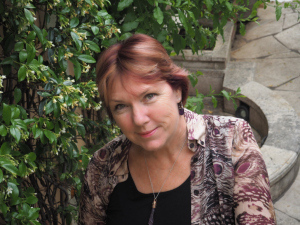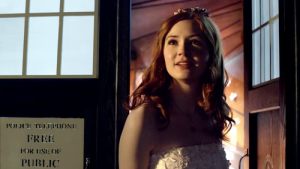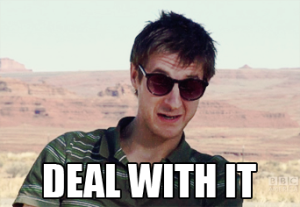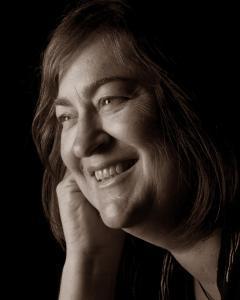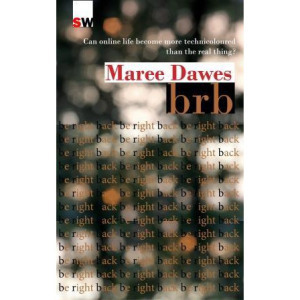Maureen Flynn's Blog, page 14
January 17, 2015
Book Review: Perfections by Kirstyn McDermott
Perfections, Kirstyn McDermott
Twelfth Planet Press, 2014
RRP: $22.95
Sometime around when I first started getting involved with the Australian spec fic scene, I told myself I needed to get my head above my comfortable reading parapet and venture to new parts of the imagination. This blog was a part of doing this. I only half kept my promise. I never read or reviewed horror. That was because I’m a scaredy cat when it comes to descriptions of violence, bodily fluids and guts being slung about and also because I am an idiot. Good horror of course goes beyond such things.
Last year at the Aurealis, I chatted with Jason Nahrung (an Australian horror writer) and told him about my horror reading conundrum. He told me, ‘Read Perfections. It is psychological horror and reads like literary fiction and even if you hate the horror, you’ll like the beautiful language.’ When Kirstyn’s novel was re-published as a physical print I took him up on his promise. I was not disappointed.

From the blurb:
Two sisters. One wish. Unimaginable consequences.
Not all fairytales are for children.
Antoinette and Jacqueline have little in common beyond a mutual antipathy for their paranoid, domineering mother, a bond which has united them since childhood. In the aftermath of a savage betrayal, Antoinette lands on her sister���s doorstep bearing a suitcase and a broken heart. But Jacqueline, the ambitious would-be manager of a trendy Melbourne art gallery, has her own problems ��� chasing down a delinquent painter in the sweltering heat of a Brisbane summer. Abandoned, armed with a bottle of vodka and her own grief-spun desires, Antoinette weaves a dark and desperate magic that can never, ever be undone.
Their lives swiftly unravelling, the two sisters find themselves drawn into a tangle of lies, manipulations and the most terrible of family secrets.
Jason was right. I loved the language, but I also found myself enjoying more than that. From the big things like a story set firmly in Australia (I used to think the spec fic scene was awash with only European and American settings, which is true to an extent, but since writing myself I have found a lot of brilliant Australian writers with the seeds for their stories planted in parts of Australia. Kirstyn is another to add to the list), an outcast goth sister who I could relate to, hard truths about feminism, gender politics, sexuality and careers which didn’t make me want to murder the author and creepy plot twists that I didn’t see coming to the small things like an Emilie Autumn shout out (seriously guys, Opheliac is one of the greatest songs ever) and pockets of prose that sing like good poetry. This story has the added bonus of being accessible to both genre and non-genre readers, being planted firmly in the real world with relationship trauma and family ties and fractures explored, even as magic plays a part in the horror that unfolds.
I really enjoyed this novel of dark desires and bitter spells and hope that I can find my kindle after a spell State-side so that I can download Madigan’s Mine and the Aurealis winning short story collection, Caution: Contains Small Parts also by McDermott.
You can purchase Perfections through the Twelfth Planet Press website here. You can also find Kirstyn’s work on e-reader.
Perfections: 4.5/5 inky stars

September 10, 2014
Once upon a time…looking at the opening lines of books.
Thanks for the shout out, Lisa! Great post! I am honoured to be considered as a great first line writer alongside the likes of Neil Gaiman!!!
 Originally posted on Welcome to my Library:
Originally posted on Welcome to my Library:
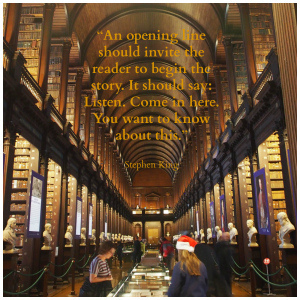
Trinity College Library, Dublin with Holly in her Santa hat. Photo: Lisa Fleetwood December 2013.
I love a good first line, it can be intriguing, beautifully written, scary or thought provoking. Or boring!
Thanks to my friend and writer Maureen Flynn for this idea. She posted on Facebook asking a few writer friends to put up the first line of the first three chapters of their WIP or ‘work in progress’. It really made me think about the first line of my novel, so I decided to do some research and look back through some of the books I’ve read this year and re-read some of their opening lines.
The first line in my list below is by acclaimed Australian novelist Richard Flanagan. His book The Narrow Road to the Deep North was a hard read (for me) but beautifully written – as you can see by his opening line. He has just been shortlisted…
View original 1,075 more words


August 30, 2014
Another Interview with Myself
Not because I’m inherently narcissistic but because my faithful livejournal reader, squint13, was curious and wanted the following questions answered.
What’s your writing process like?
The short answer is that my writing process is still evolving as I am new to this game and it often looks a mess to an outsider looking in. I find that I start writing without much planning and then get stuck between 10-20 000 words on first draft and need to stop and take stock and start a planning process of what my plot looks like. I only worry about plot in first draft, then worry about world building and research details and consistent characters in second draft.
How do you come up with characters?
I often start a story with a couple of burning scenes in my mind and characters just happen. For my first fantasy novel, I had four protagonists, which was too many. I did a course with author, Kate Forsyth, and she got me to stick with one, my favourite, who is now the Claire character. In my second fantasy novel, which is half written in first draft now, I started with a revisionist take on Snow White and Rose Red and the two Princes they marry so in a sense had some vague character traits already laid out for me. I then scratched the idea and went with telling the story of Prince Charming’s brother without the framework of the fairy story. It gave me more freedom. In my crime novel, about fame and fandom, I based the two main actress characters off actual actors on the screen, but obviously as I write, I imbue them with what I need for the story so that now, they aren’t anything like those two actresses at all. On the whole, I often write the characters to match the plots in my head, so even when my characters start out as being one thing, they morph to meet the needs of the story.
Do you use character sheets, like with characteristics and backstories and quirks and friends and looks and favorite things and family stuff? Do you write backstory things, and little stories about everyday things and stuff they get up to, just to get to know them better?
No, I don’t. I should. It would save me so much time in second draft on getting characterizations and motivations right. I do plan the basics in my story notebook eg character motivations and desires and fears.
How are you inspired; do you use music, do you go for walks, do you watch movies/shows/read?
I am inspired by the entire world. Sometimes it’s the lyrics to a song, sometimes it’s to history, sometimes it’s to minor characters in books and movies, or to the way actors portray some form of human emotion. Stories always start from the place of, ‘what if?’ ‘What if Prince Charming was horrid?’ ‘What if the murderer in Wire in the Blood hadn’t given himself away to Tony and Carol had been strangled?’ ‘What if a character could travel back in time?’ I never have a shortage of ideas.
Do you have someplace where you like to go to write/think?
I like to write at night in bed in my notebook. Otherwise I set time aside and just type away at the computer. It doesn’t matter if it isn’t any good. That’s the main thing. Just keep typing. Especially on first draft. You can fix inconsistencies and bad writing later. The main thing is to start. A writer writes. That’s it.
Have you read books on writing?
Yes, and I really recommend doing it. The best one I’ve read is ‘On Writing’ by Stephan King. Go read it. Now. I’ve also got some books on english grammar and puncutation because I’m rubbish at it, a thesaurus handy and a great little book by Australian author, John Marsden, with writing exercises for students. I should read more. I hear Carmel Bird is good.
How do you work out plots and subplots and twists; and do you do something to keep track of everything, like a mind map or diagrams or have a book full of scribblings of things?
I have a notebook now for each story I tell. It is too hard to keep track otherwise. I am getting better at planning. I used to just smash out word and worry about logic later, which was incredibly time consuming and impractical. For my current fantasy ms, Thashidion, I have been plotting and planning in an A4 notebook late at night. The best tool for figuring out plot/sub plot and twists has been advice from Joanne Anderton. Particularly in genre fiction, start with the ‘what if?’ and follow up with the ‘so what?’ question. So if the what if part is ‘what if Prince Charming was emotionally abusive?’ the ‘so what?’ might be ‘and that makes Snow White have to learn her step mother’s magic to free herself. Too bad she let the step mother die.’A twist might be that the step mother was never actually all that evil and now Snow White must deal with that emotional realisation.
You can read The Kelnarium Prophecy here and a mentor’s critique here


June 30, 2014
Author Q&A With…. Australian Author Fiona McArthur
 Originally posted on All The Books I Can Read:
Originally posted on All The Books I Can Read:
Today I am thrilled to welcome lovely Australian rural/romance author Fiona McArthur to my blog to help celebrate the release of her latest novel, Red Sand Sunrise which is published -today- by Penguin Books Australia. As well as being an author, Fiona is also a midwife and has spent 25 years working in rural communities. She’s also a clinical midwifery educator and helps teach emergency obstetric strategies working with midwives in doctors in rural areas. As well as Red Sand Sunrise she has written over 30 romance novels as well as a non-fiction book called The Don’t Panic Guide To Birth.
My review of Red Sand Sunrise will be posted on the blog a little later today but for now….enjoy learning a little bit more about Fiona and her work.
Q1. Hi Fiona and welcome to my blog! Thanks for taking the time to answer some questions for me…
View original 1,564 more words


June 2, 2014
Feminist and Loving Moffat Doctor Who: Why I am Done (Re)Explaining Part 1
I don’t normally post this sort of piece on my public blog or weigh in on fandom issues here – not because I don’t care about said issues – but because often my livejournal is a better home for such posts. However, Doctor Who fits squarely into the speculative fiction genre and what’s more, now maybe more than ever, it is a globally popular phenomenon. Besides, I am tired of justifying why I like the show. I am really, really tired of it. What’s more I don’t believe I should have to keep justifying. The internet has reached the point of generating more heat than light on the ‘Moffat is/isn’t sexist’ topic. I will give my reasons for what I believe and then never discuss this again. Please respect my opinions and decisions on this, just as I will respect your opinions and decisions. If you disagree with me violently, go write about it on a blog. Philip Pullman made a great speech on freedom of speech once. I am exercising my right to use it. I’m not stopping you from using yours. And if I really annoy you, tune in to Neil Gaiman and make good art.
First of all I don’t think I’m going to get anywhere without some basic frameworks to go off. Some quick QandA to get started;
Is InkAshlings feminist?
Yes, I identify strongly with being feminist; I believe in equality between all genders and I believe in smashing the patriarchy. Take a look at this blog and it should become apparent pretty fast. Maybe I don’t need to say this but you never know who will come calling.
What is feminism?
Leaving aside the issue of faux feminists, I do know that the definition itself is contested. To save on confusion I’m going with the most broadly known and popular via wikipedia.
Feminism is a collection of movements and ideologies aimed at defining, establishing, and defending equal political, economic, cultural, and social rights for women. This includes seeking to establish equal opportunities for women in education and employment. A feminist advocates or supports the rights and equality of women.
What is sexism?
Let’s have a basic sexism definition from dictionary.com (slightly more nuanced than wikipedia’s).
1.
attitudes or behavior based on traditional stereotypes of sexual roles.
2.
discrimination or devaluation based on a person’s sex, as in restricted job opportunities; especially, such discrimination directed against women.
What experience do you have in fandom and have you actually read feminist criticisms of Moffat within fandom?
I have been ‘active’ online since 2007. I’ve been involved in forums, on twitter and tumblr, obviously wordpress, dreamwidth and livejournal. I have read STFU Moffat and other tumblr users comments on Moffat Who. I have read blog posts. I have listened to my friends. I have engaged with the debate on livejournal comms. I hear your points of view. I really do. Some of them I don’t take seriously because they are arguments that start from a warped understanding of feminism. Some are arguments that I can understand but still don’t agree with because of a wider show context which I either believe you have missed or I interpret differently to you. Some I do agree with. Sometimes my faves write problematic things. Sometimes Doctor Who is problematic. It doesn’t change the fact that Moffat Who remains imaginative and humanist and boundary pushing for me.
So, how are Amy, Rory and River feminist characters?
You will notice I have deliberately left Clara out. Clara is problematic. I will discuss her last. You will also notice that I counted Rory as a feminist. That’s because I believe that the way the show has written Rory is as a male feminist. For the sake of ease of analysis, I will take each Pond in turn.
Amy
“There is such a place as fairyland – but only children can find the way to it. And they do not know that it is fairyland until they have grown so old that they forget the way. One bitter day, when they seek it and cannot find it, they realize what they have lost; and that is the tragedy of life. On that day the gates of Eden are shut behind them and the age of gold is over. Henceforth they must dwell in the common light of common day. Only a few, who remain children at heart, can ever find that fair, lost path again; and blessed are they above mortals. They, and only they, can bring us tidings from that dear country where we once sojourned and from which we must evermore be exiles. The world calls them its singers and poets and artists and story-tellers; but they are just people who have never forgotten the way to fairyland.” The Story Girl, Lucy M Montgomery
A quick digression: I have never disliked a companion on New Who. Rose had a rubbish story line that revolved around her needing the doctor (more on this later) but Billie Piper is pretty great (if you say otherwise so help you…) and Donna as played by Catherine Tate could come across as annoyingly shrill but she also called Ten out on his silliness and was a marvelous friend to him. But my favourite New Who companions are ones who show agency, who make real and meaningful choices separate from The Doctor. Martha might have spent her time mired in scripts that left her endlessly pining for Ten, but I can’t have been the only one cheering her choice to leave the TARDIS in s3. I found it to be empowering and believable.
Enter Amy Pond. Feisty and sexy TM, yes, but also flawed and hurting and terrified of commitments. Amy cannot be boiled down to a sexist stereotype. Amy, the girl who waited for a raggedy man and then… grew up. This post does not seek to deal with every criticism of Amy Pond. I want to hit publish before midnight, but I will try and cover the main ones. First off, to those who cry sexist at Amy wearing short skirts and colourful, bright attire, I am sorry but go away. Equality between genders encompasses the right to wear clothing of choice in safety without being called names. Amy wearing a particular outfit in and of itself is not sexist. Amy wearing short clothes to be a subject of the male gaze is. Some believe Amy was only ever eye candy. I find this to be reductionism of the most blatant kind and I will not engage on this.
Second criticism, Amy only existed for The Doctor; in series 5 she grew up expecting him to turn up again after he appeared to her as a kid and she role played stories based off that experience. She is only freed of The Doctor when she marries Rory and fulfills hetero-normative expectations. This is true but only to a point because Moffat is doing two things; first he is operating within a mythos of Peter Pan fairy story that isn’t about gender at all. It’s actually about childhood and adulthood and growing up. The Amy Pond ‘girl who waited’ story could have worked in the same way if Rory and her role had been reversed. This is an incredibly common fantasy trope and is much more about believing in fairies than it is about gender roles. Or to quote Dumbledore, we’re in the territory of, ‘of course it’s in your head, Harry, but why on earth should that make it any less real?’ This theme is obvious and it permeates Moffat’s run in RTD era Who and throughout Eleven’s run because Eleven is the alien who can’t interfere in people or planet’s unless he hears a child crying.
Secondly, Moffat subverts the traditional secondary female character falling for main male hero narrative (used by RTD with Rose/Ten) by having Amy make a choice. Amy chooses Rory because Amy discovers she loves Rory and not The Doctor. The (problematic) kissing at the end of Flesh and Stone and the (also problematic) way that Amy attempts to kiss The Doctor at the end of The Big Bang are not about male gaze. It is character development. Any child offered at a young, impressionable and imaginative age the chance to travel the stars with a mad man with a box would have difficulties adjusting to ordinary life (it’s one of the reasons why novelist Amy in The Bells of St John makes so much sense) and any child who grows up without stable authority figures would be afraid of commitment. Amy is strong willed and adventurous and flirtatious but she is also flawed and mean and petty and scared. That makes her well rounded in my eyes. A quick note on the wedding; a woman choosing to get married to someone she loves it not sexist. In the case of The Pond’s it is also an extension of the fairy story subversion. Fairy stories end when the princess gets the rich prince at her wedding. Moffat shows what happens after the wedding when messy human emotions kick in.
Then we hit Series 6 and the criticism became that Amy was Moffat’s River incubator. What’s more Amy can’t have children ever again because of The Doctor. I agree that Series 6 was problematic. It didn’t feel believable that Amy and Rory bounced back so fast after A Good Man Goes to War. I don’t think Amy is only an incubator. It baffles me that again people try to reduce a nuanced character to this. Yes, she spends half of s6 being pregnant, but she also spends her time (as she did in s5 much to many peoples discomfort, which says more about them than Moffat) pointing out The Doctor’s flaws and foibles, putting his feet back to earth and solving problems he can’t solve. In Series 7, the Amy/Rory divorce is shoe horned in but again I don’t think it’s sexist. It makes sense within the fairy story growing up framework that Moffat has going. Amy can’t settle to ordinary life and she fails to communicate with Rory and he with her. This isn’t sexist. This is an honest look at human relationships. When both are helped by The Doctor to communicate, they repair the relationship and become closer than ever. They also make the sensible, if unpopular decision to stop being full time TARDIS occupants. Why? Because Amy has finally grown up. She doesn’t need The Doctor’s mythos any more because real life has supplied its own mythos; that of love. Her life no longer revolves around The Doctor. It revolves around living with Rory whom she loves as well as having a range of creative jobs covering a kissogram, perfume creator, model and then writer.
Amy starts off as a character with little or no agency because she is a child who sees things upside down. Her adventures with The Doctor help her see her path more clearly and she chooses that path. She is written in a way that gives her equal standing with the two important men in her life (The Doctor and Rory) and she makes independent decisions about where she has headed and is heading. She moves from a character with no agency to a character with agency. Ten’s companions tell themselves (and The Lonely God allows them to believe it) that they aren’t anything without The Doctor (Rose needs a human Doctor to feel fulfilled and Donna has her memory erased, her character development set back to zero and is granted her own empty white wedding complete with a Doctor gifted lottery ticket) – the exception to this being Martha who refuses to be defined by The Doctor as a secondary Rose and therefore chooses to walk out – but Amy is allowed a level of growing self worth and agency that is unusual on a show that for so long has been about the male hero. As, Moffat reminded us at the end of Angels Take Manhatten, ironically, s5-7.5 was always ‘the story of Amy Pond.’
Rory Pond
A brief section on Rory. I love Rory. I love him fierce. Here is a man who waited 2000 years for the woman he loved. Here is a man who is comfortable in his traditionally feminine role as nurse. Here is a man who is comfortable being known as Rory Pond even if the patriarchal institution of marriage dictates otherwise on paper. Here is a man who recognizes that his wife needs more than the ordinary to be fulfilled so he keeps travelling through time and space even though the adventures really, really scare him. Here is the man who helps to defend those he loves but is still nurturing and caring and is OK with that.
Married to Amy Pond, how could Rory be anything but a male feminist?
I don’t find the Pond’s sexist. The Pond’s are my favorite story on New Who. Heck, they are one of my favorite love stories ever. I say that as an identifying feminist. And I’m done repeating it.
Post 2 will discuss River and Clara. This post turned mammoth. I have had four years to think this out. Comments are screened same as usual


May 28, 2014
Poetry and the Chat Room: An Interview with Maree Dawes
A few months back I was very lucky to receive a review copy of BRB; a verse novel by Australian poet, Maree Dawes. I’d just started a new job and it took me ages to pick up the novel, but it was worth it when I did. I love poetry- writing it and reading it- and I am very honored that Maree was able to take time out of her schedule to give some meaty answers to the questions I posed for her.
How did you first discover poetry and what is it about poetry that appeals to you?
I can remember my mother saying the Song of Hiawatha (Longfellow) from memory so I guess poetry has always been a part of my life. I wrote poetry in primary school, and one of my teachers was very keen on us learning and reciting poetry by heart. From then on I wrote a lot of very heartfelt but not very crafted work. Doing some creative writing workshops, some Uni courses and reading volumes and volumes of Australian poetry made a difference.
Why verse novels and do you have any people you look up to within this specific genre?
Verse novels because that was the form that most nearly suited this work. It’s something I try and achieve with all my writing – find the form that makes the most of the other elements. My other full length work Women of the Minotaur has some aspects of narrative, but it remains a collection not a verse novel. I called BRB a nanonovel to start with, but that has another specific meaning in that you write it quickly which wasn’t what I did. I also like to write shorter works, for example my short stories are short short – less than a page.
I can’t go past Dorothy Porter if I’m choosing my favourite writer of verse novels.
Who are your favourite authors and why?
This is a difficult question for me because it often relates to just what I am reading at the moment. David Malouf and Michael Ondaatje are both writers I admire for the sheer beauty of their words while writing of things that really matter – and they both write poetry! Barbara Temperton and Caroline Caddy are South West Poets who inspire me – they both use imagery which stays with me for days.
You portray the beginnings of the internet chat culture in BRB. What inspired you to write about this topic?
I was involved with chat at that time and while I was chatting I wrote imagined pieces. It was a fascinating world to me and I had a lot of fun creating my verse novel world alongside my chat world – although it wasn’t a verse novel then – just very many disparate pieces. In a way it was a writer’s paradise having a world made of words.
Did you do much additional research to write this verse novel? How did you go about it?
Unlike Women of the Minotaur where I read autobiographies, biographies and visited galleries this was more about little snippets of information coming to me. At the time I was writing the original draft I would see an article, read a book or go out into the community and think – what would Boadicea’s IRL person be thinking in this situation. The lovely day at the beach in Dogs have been known to die from eating sea hare was based on a day at Parrys beach with friends. I also read erotica and conducted a chat room poll on words for vagina. Honey pot appears in the poem Contemplating the options with a clear head.
Do you have any personal stories of early life on the internet that you’d like to share?
I really did write Rengas across the digital world – Mumbai, Albany, Bucharest and what we wrote about was the outdoors, the sea, flowers, leaves falling and snow. Not quite Basho but great fun.
When reading BRB I was struck by how ‘Boudicea’ is able to express herself both sexually and artistically when anonymous on the internet. Was this a theme that you sought to bring out deliberately within the novel?
Themes were the middle work of writing BRB – after most of the different poems and fragments and made up chat were written. Reflecting on theme really helped link the pieces into a narrative. I certainly wanted to explore what aspects of the self were revealed when it was possible to try a particular role and not be hampered by judgement, or being stuck with the choice – online in a new persona, Boadicea could explore many aspects of self, including the sexual and artistic without being concerned about reputation.
The ocean is a re-occuring motif in BRB. What significance does the ocean hold for you?
Perhaps it’s the recurring dream I had as a child of surfing a huge wave I could never dismount from … or the fact that I lived in a dry inland place for the first 18 years of my life… or that I now live on the edge of the Southern Ocean and can hear it from my front door on a quiet night. I think my next work is going to be about the ocean.
What’s a question about your writing/work that you’ve never been asked before and you’ve always wanted to be asked?
Really I want someone to ask me “can I pay you for a year to just write?
Now answer it.
The answer is yes!
But seriously…
Did you base Thistlehead on your own cyber lover?
Answer: I never kiss and tell.
Maree Dawes is an Albany based poet, who has been published nationally and internationally. Her childhood in the wheat belt and following lifestyle close to the coast in WA’s South West continue to inform her work. Maree’s first collection Women of the Minotaur explored the lives of the mistresses in Picasso’s life. It was featured on Poetica in May 2009 and dramatized for the program launch for PIAF writers festival 2010. Her short story I am so sweet and truthful first appeared in Indigo in 2008, was published in Best Australian Stories the same year and is in production for a short film with Starchild media. Maree has collaborated with artists, dancers and embroiderers resulting in a range of performance pieces and publications, from ephemeral water colour pages to projection onto the Albany Town hall. Her verse novel BRB, Be Right Back is published by Spineless Wonders and was launched at Perth Writers Festival in the Great Southern in February 2014. BRB dives headlong into on-line life in the nineties and explores its quirks, erotica and dilemmas.
BRB is available as an ebook. You can find Maree on Twitter and Facebook You can find my review of BRB Here


May 19, 2014
Poetry Spotlight: BRB by Maree Dawes
BRB: Be Right Back by Maree Dawes
Published 2013, Spineless Wonders
BRB is a wonderful verse novel that explores the early days of internet chat rooms and what happens when life on the net becomes more ‘real’ than the trappings of the reality of family and friends. This theme could have become generic internet distrust cliche but Dawes uses the first person to take us inside ‘Bodicea’s’ head to create a complex character with complex reasons for her new found obsession. As another reviewer has pointed out, some will see Dawes novel as an endorsement of the narrative that falling down the internet rabbit warren destroys lives. Really, BRB highlights the truth that we all deep down know- if we don’t get what we need from our everyday lives we will find it elsewhere.
From the blurb:
Partner away and home alone but for the sleeping children, our protagonist joins online chat. She and her family moved to the country and up till now she’s been bored and disconnected from her everyday world.
She battles with online language and protocol and wonders if anyone in the chat rooms will ever speak to her.
Then online life becomes more technicoloured than the real thing…
Told from the first person point of view this verse novel uses the language and shape of online chat, email, fragments and stream of consciousness to take the reader headfirst into the world of online life in the nineties. For those who were there it will recreate the moment, for those who never were it’s a chance to experience the beginnings of social networking with the humour, excitement and dilemmas it can pose.
I should admit here that I am biased. I didn’t grow up using the internet in the nineties, but rather in the late 2000s when teen angst overwhelmed and I struggled to find an outlet for my then deemed ‘freakish’ artistic obsessions. The internet has changed my life thanks to experiences in multiple different fandoms and multiple different internet mediums including livejournal, twitter, tumblr, dreamwidth and various forums. Without these internet platforms, I wouldn’t be the feminist writer I am today. Without chatting on the internet, I would be several friends poorer.
Reading BRB took me back to the heady early days of my teen internet exploration when I’d have enormous forum msn chats with people I’d never met at ungodly hours of the night, write poetry for each other in the Poetry Thread, and in one particular year, experimented on chat roulette with a bunch of other young girls. There is something intoxicating about the ‘freeness’ of the internet and Dawes captures this freedom (both sexual and artistic) through her seamless verse. Written in the awkward stop and starts of internet chats, complete with the jargon language and names and haunted by the black pitted trolls as well as too good to be true knights in shining armour too often found online, this novel struck a nostalgic chord.
BRB: 4/5 inky stars


April 7, 2014
Conflux Writers Day
Well. What a whirlwind weekend I had in Canberra with the Conflux Writers Day and the 2014 Aurealis Awards. This is the second time I’ve attended the Aurealis and I hope that I can continue to keep attending to support nominees and to have a really great time at the after party! It was nice for Nicola Murphy and Co. to organize a professional Writers Day before the Aurealis too, because it added that extra incentive for people to attend the big speculative fiction night!
Others have already covered the Aurealis so I want to briefly cover the Conflux Writers Day.
The day kicked off with Joanne Anderton teaching us about ways to create working worlds. I loved her road test for a coherent story and world: World’s need to be based on ‘what if?’ ideas but you need to test the idea with a ‘so what?’ follow up. In other words, keep worlds as simple as the story needs to be, don’t let the world get in the way of the story. Anything that isn’t relevant to the story will need to be deleted on an edit.
The second Plenary Session was on using minutes when you don’t have the hours and was delivered by the awesome Kaaron Warren. I found this talk to be one of the many highlights of the day simply because Kaaron said some things that were confronting to me as a writer that are also obvious if we are to come at writing as a profession business! Kaaron let us all know in no uncertain terms that writers need to write for continuity and to stay professional. A special time and a special place isn’t necessary! Writing is in our head (ideas) and our hands (from paper to pen) and there’s no point in waiting for time and inspiration. It will never come! This was timely advice for me as I start a new full time job and wonder how on earth I’ll get all of the projects I’m working on done by the end of the year!
After the Plenary lectures, were a host of speed date style 20 minute talks on various aspects of writing processes, writing skills, submitting and publishing and building your career as an author. I enjoyed the very quick run down on six mistakes first time writers make (not reading enough, not learning craft of writing, not knowing where to start, not knowing story structure, forgetting the show don’t tell rule and inconsistent POV). Next up was an equally helpful session on Character Motivation. I was very excited after this one as the session addressed numerous problems I have been happening with my first novel. Motivation is shaped by deep desires and fundamental fears and the reader must always know both.
A quick break and then we sped through the essential elements of the novel with Chris Andrews and then learnt all about word frequency analysis as a self editing tool. After this talk, I was convinced more than ever that Scrivener may well be a good investment! I attended two talks on research- one by Rob Porteous and one by Cat Sparks, with both covering different aspects of the uses of research which were incredibly helpful for me as I work on my second ms. I particularly liked Rob’s tricks for generating speculative language and names and Cat’s tip regarding spot research.
We ended the day on two more Plenary lectures. The first, from Ian McHugh, addressed submitting short stories and dealing with rejection again and again and again. I haven’t tried submitting short stories anywhere yet but Ian inspired me and I know I need to start! Rejection is all part of the author game! I found the pithy advice of ‘have doubts, ignore doubts, keep enough irons in the fire (10 stories at a time), show off (accept praise when story accepted) and be afraid but do it anyway!’ to be short but helpful.
The last lecture ended the day on a positive note with an author success story. I loved hearing from Keri Arthur about the trials and tribulations of making it to the New York Times Best Seller list and sat in awe when she told us she wrote five pages every day! No wonder she is so prolific!
You can see photos from the Conflux Writers Day and the Aurealis Awards Here. Photos all copyright Cat Sparks.


April 6, 2014
What stops an agent from wanting to read more of your story?
A great post!
 Originally posted on onewildword:
Originally posted on onewildword:
One of the most popular events each year at the Surrey International Writers’ Conference is a workshop called SIWC Idol. Think American Idol except for writers. Anybody who’s brave enough can submit the first page of their manuscript to be read in front of a panel of judges—four literary agents.
Author Jack Whyte, in his deep and resonant voice, reads a random selection of first pages in front of the 200 or so writers. He reads until at least two of the agents raise their hand indicating this is where they’d stop reading if they were reading the submission in their office. The agents then explain why they stopped where they did.
I was lucky enough to be one of the few submissions where a hand wasn’t raised. But what exactly stops an agent from wanting to read further?
Too much description up front that’s not interwoven into the…
View original 334 more words


March 14, 2014
Online Book Tour- Close Call by Eloise March
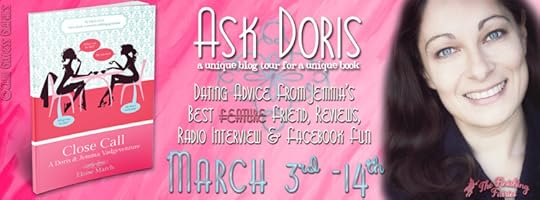
I am excited today to have Doris on the blog with a spot of advice, to show you just what all the fuss is about and just who Doris is. Don’t be afraid, she doesn’t bite and it has been proven beyond scientific fact she has no teeth, but her wit is sharp and she does tend to rip into you if you stray away from being true to yourself.
With Valentine’s Day behind us and the lonely hearts club back to drinking wine from a box or perhaps, hitting the clubs again, there are still a lot of gals trying to figure out a way to keep their dignity intact and still find a man who excites them and will make them happy throughout their lives…or at least have a serious and stable relationship with! Maybe even those whose glitterific relationship has lost some of it’s shine needs a bit of a boost!
Are you game? We also will be having a live interview with the Cabin Goddess, Kriss (she is also one of the head Fairies here), and a central Facebook event page where you can post questions for Doris throughout the tour, get updates and links during the tour and ask more info on the novella! Everyone in the know has been itching to see this book get everywhere and in have people join them in reading it and laughing just as hard as they did! You won’t even need cream afterwards.. perhaps a glass of wine and a new boyfriend, but not any cream!

Can Doris describe the perfect guy (or should that be penis)?
Doris: The perfect guy? Bahahahaha. Ahem, sorry. My idea of a close-to-perfect guy and penis (we have to at least aim for something that exists) is one who respects the woman and wants to make her vagina happy too. A man who is honest, loving, tries to do his best — even if he doesn’t always succeed. He also has to be able to say “Yes, you’re right. I was wrong.” If he can’t say this, he isn’t honest and will never learn. And the penis has to be disease-free and not aggressive — I don’t do diseases or violence (as you probably already know).
Book Review
Close Call by Eloise March
RRP: 99c Ebook, $8 physical print
Publication Date: 2013
Wow- where to start with this short, but very entertaining, read? I admit that it was the gorgeous cover that first drew me in. It’s one of those rare covers that actually looks like the cover artist has read the novel and designed accordingly. The author’s goodreads blurb is also pretty accurate. Think cross between Bridget Jones Diary and The Vagina Monologues and you end up with Close Call – a story that dares to ask what would happen if our private parts could talk. Not only does it dare to put our privates at centre stage, author Eloise March goes a brave step further in giving female, rather than male genitalia, the floor. Yes, this is a short, very feminist, novella about a 22 year old named Jemma who just can’t seem to find her Mr Right. Luckily, her vagina, Doris, is able to help (albeit with sometimes disastrous results).
As well as being feminist in giving women and their sexual desires voice in a world that often doesn’t, varied sexuality is also explored in this piece (vagina’s liking vagina’s is discussed). However, I do wonder if homosexuality will come up in later novella’s in the series. I feel like I’d like to see this for the sake of fairness. But that’s not the central concern. This novella celebrates what it means to be ‘woman’ with humour and relatable situations galore. I especially enjoyed the ditzy blonde cousin whose Vagina is called Va Gina and who is just as idiotic and snobby as her ‘owner.’
Close Call is a fun, short and ‘woman’ affirming read. I did laugh reading it on the train next to the conservative looking elderly couple!
The only drawback? This is a fast read and the next in the series isn’t out yet!
Close Call: 4/5 inky stars
And finally… an interview with Dionne Lister AKA Eloise March!
1. Where did the idea for a book about talking genitals start?
On Facebook. I was there one day (well, I’m there every day but we won’t discuss my addiction to social media) and one of those sidebar ads kept taunting me. It was a weight-loss ad, because I’m a woman, Facebook feels I need to be targeted by those things. The ad had a unique way of grabbing attention: it was a picture of an offensive piece of fruit that looked like, well, a person ‘chucking a brown eye’ or a woman spreading her legs. Then I (naturally) thought Imagine if someone put an picture of a vagina on the cover of their book – that would certainly get lots of attention, and then I took it one step further: what if the main character was a vagina?
2. When did you find out you were a feminist?
I’ve always been one, but the realisation hit me when I was at uni – only a couple of years ago. And even then I would never have contemplated writing a book with a talking vagina who wants the best for her woman.
3. What gender issues will you tackle in subsequent books?
There’s so many, and I’m sure I’ll think of more as time goes on, but rape, other violence, sexism in the workplace, and in later books (because there will be a few), the struggles women have juggling work and home and society’s opinions both on working mothers and mothers who don’t contribute enough (italics = sarcasm in case you’re not sure) because they stay home, therefore having it easier than everyone else – which is bloody ridiculous. We can’t win. Why? Because we’re women. I’m also going to explore sexuality – Jemma’s sister is gay – cancer and childbirth.
4. I like that you acknowledged that it’s OK for vaginas to like other vaginas. Will you delve into this more as the series progresses?
Yes. Sam, Jemma’s sister is gay, and I plan to explore the relationships she has and the way society looks at her when she and her partner are out and about.
5. What’s the main message you want men and women to get out of your series.
Well, for a start, I want equality for everyone – not just women, but this seems like a good place to start since we’re at the bottom of the rung, still, after all the efforts by all the people over the years. I want men and women to see through the perfect, sexualized images of women that are everywhere. I want women to feel empowered and make better decisions for themselves, and I want their friends and family to support those decisions. I don’t want women to be objectified, and that goes the same for men too. It seems like everything is grounded in how sexually attractive people are. When did our existence become so focused on sex and how sexually desirable a person is, their worth judged on this fact alone. Men and women: please respect yourselves, stop being so judgmental, embrace difference and support each other. Oops, I’m ranting, sorry *blushes*.
Thanks so much for hosting me on the last day of the tour, Maureen. It’s been lots of fun! And for all the seriousness today, the book really is a light-hearted, humorous read – how can genitals that talk to each other not be funny?
Want to try for a free giveaway? Enter the Rafflecoptor Giveaway Here
Viva la Vadgeventures!

Close Call: A Doris & Jemma Vadgeventure
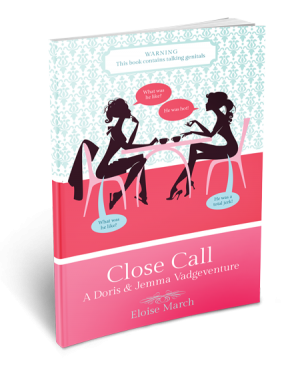 Close Call is the first instalment of “A Doris & Jemma Vageventure” series.
Close Call is the first instalment of “A Doris & Jemma Vageventure” series.
Think Bridget Jones Diary and The Vagina Monologues.
Twenty-two-year-old Jemma can’t seem to get her life in order. Her track record with men stinks, she constantly worries about getting fat and ending up a spinster at thirty. And to top it off, she has to be a bridesmaid at her most-hated cousin’s wedding. She feels like her life is over, until Doris decides to help out. Who’s Doris? Doris is Jemma’s vagina and she thinks more of Jemma than her own brain does. Doris is on a mission to save Jemma from herself, but is the task too much for one vagina to handle?
TAGS: Fiction, Chick Lit, Humor, Women’s Lit, Romance
© 2013 Dionne Lister Cover by Sol Pandiella-McLeod
Now available on Amazon, Barnes & Noble, Smashwords, Kobo, iTunes, and Sony.
Meet Eloise March aka Eloise March
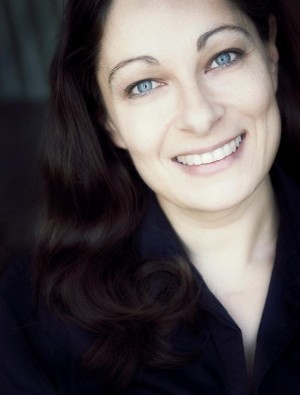
Eloise March is a woman who laughs at her own jokes, swears way too much and breaks any new diet by lunchtime on the day she starts. She believes in women’s equality, and all equality for that matter, and hopes the things she writes touch people in a positive way, and make them think about how they can create a better society for themselves and others.
In her spare time, she enjoys living as her alter ego, Dionne Lister — a suspense and YA fantasy author who is way too embarrassed to talk about vaginas. She likes spending time as Dionne because Dionne has an awesome family, wonderful friends and a cat called Lily, oh, and she has great hair.
If you’re looking for Eloise, or any information about future books in the Doris & Jemma Vadgeventure series, you can visit Dionne’s website, where Eloise has been lucky enough to get her own page http://www.dionnelisterwriter.com. If you’re looking for a chat, you can find Ms. March on Twitter.
Facebook ~ Twitter ~ Website

Follow the Tour
Monday – 3/3/2014:
Random Reviews by Leanne Review
The Sinner Author Review
Tuesday – 3/4/2014
Literary Chanteuse – Ask Doris – Dating Advice
Photography, Poetry and Indie Authors – Ask Doris & Review
Wednesday – 3/5/2014
Lady Reader’s Bookstuff – Close Call Playlist
Like a Bump on a Blog – Ask Doris & Review
Thursday – 3/6/2014
Pinky’s Favorite Reads – Ask Doris & Review
Ramen Noodle Book Reviews – Ask Doris & Review
Friday – 3/7/2014
Our Wolves Den – Ask Doris – Why Doris?
A Day in Doha – Review
Saturday – 3/8/2014
Books & Chocolates – Review
A Book Addict’s Delight – Ask Doris – Dating Advice
Monday – 3/10/2014
J E Haldeman – Ask Doris – Dating Advice
Tuesday – 3/11/2014
Jess Resides Here – Review
Indie Authors You Want to Read – Ask Doris – Dating Advice
Wednesday – 3/12/2014
Our New Generation for Reading – 3/12/2014
Thursday – 3/13/2014
WS Momma Readers Nook – Ask Doris & Top 10 Favorite Books
Bestsellerbound.com – Tell Us One Thing
Friday – 3/14/2014
InkAshlings – Book Review, Interview and Ask Doris
Final Day of the Tour – Saturday March 14th
Interview with The Cabin Goddess
Follow along on FACEBOOK




